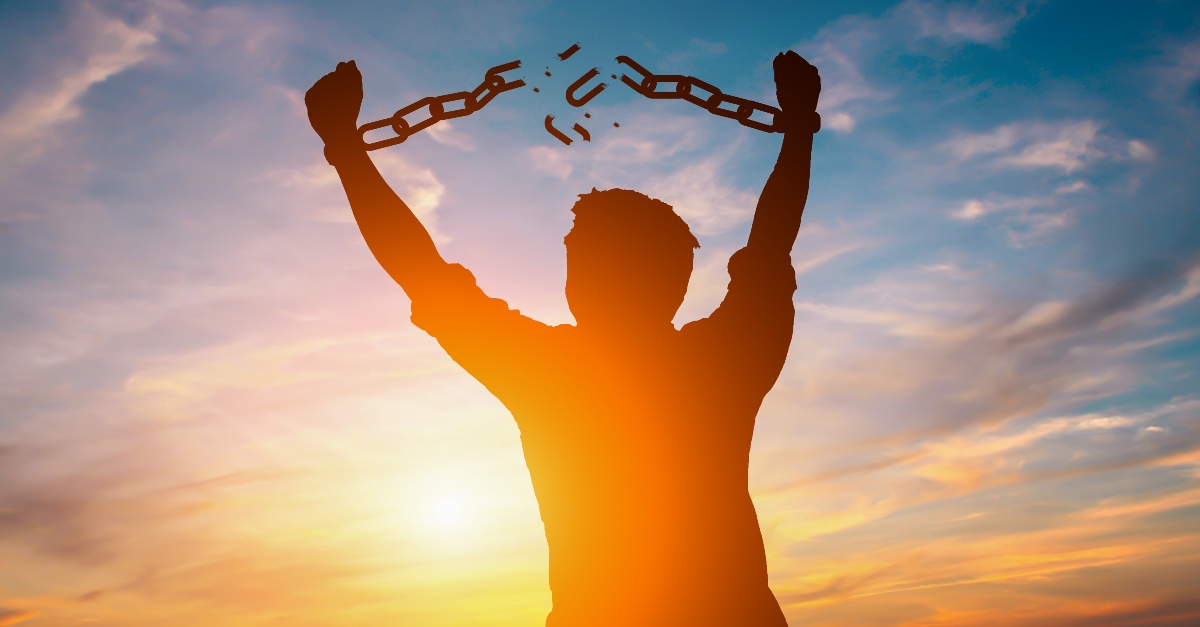
If only Pharaoh had let the people go, he could have saved himself and his people from much hardship and heartbreak. If only Pharaoh would have realized that when God calls us to let something, someone, or anyone go, it's not to take from our lives but to add to them.
Last week, I watched a child refuse to listen to their parents in the store. No matter what the adults offered in a plea, the child had made up their mind that their decision was best. With a shake of my head, I couldn't believe the toddler’s inability to at least weigh the options being presented to them. While we may not all be the most patient or contemplative individuals, don't we often do the same thing?
A few days later, my boyfriend and I viewed an excellent dance recital that presented the message of deliverance from life's challenges. Through a two-hour show, the choreography focused on Pharaoh's inability to let God's people go, and I was reminded again of this child in the store.
Plague after plague, God hardened Pharaoh's heart, and God's people were bound in treacherous slavery. It didn't matter that all the water turned to blood, and the people were thirsty for something water couldn't satisfy. It didn't matter that frogs covered the Egyptian land, gnats infested the ground, flies filled the home, livestock died, boils broke out on their skin, hail fell like raindrops, locusts ate everything, and darkness covered the earth; Pharaoh still had a stubborn heart.
Photo Credit: © Getty Images/Khosrork

God Confronting the Hard and Fickle Heart
While Exodus 7-12 recounts these horrific scenes, Pharaoh was not persuaded to let the people go until Exodus 11, after every firstborn cattle and son (including his own) had died. It appeared that Pharaoh had finally come to his senses by kicking God's people out of his land.
"At midnight the Lord struck down every oldest son in Egypt. He killed the oldest son of Pharaoh, who sat on the throne. He killed all the oldest sons of prisoners. He also killed all the male animals born first to their mothers among the livestock. Pharaoh and all his officials got up during the night. So did all the Egyptians. There was loud crying in Egypt because someone had died in every home. During the night, Pharaoh sent for Moses and Aaron. He said to them, "Get out of here! You and the Israelites, leave my people! Go. Worship the Lord, just as you have asked.” (Exodus 12:29-31, NIRV)
Merely two chapters later, however, Pharaoh decided that he made a mistake. When word came to him that the Israelite's have escaped, he became outraged.
"The king of Egypt was told that the people had escaped. Then Pharaoh and his officials changed their minds about them. They said, "What have we done? We've let the people of Israel go! We've lost our slaves and all the work they used to do for us!.” (Exodus 14:5 NIRV)
With his army and mighty chariots, Pharaoh begins racing after a people who belong to the God in charge of the plagues he's barely survived. As a victim of spiritual amnesia, he arrived at Pi Hahiroth to get back the people he begrudgingly released.
While the story continues to tell of God's miraculous favor upon His people and the destruction of Pharaoh and his people in the sea, one small principle stands out: We're all Pharoah at times.
The Stubborn Streak That Keeps Us Captive
As much as I love the story in Exodus for God's redemptive power to deliver us from what we're going through, I felt that God was speaking to me a new revelation. We can read this simple story and comprehend that God hardened Pharaoh's heart to display His majestic power and saving grace. All of us need to understand that truth in the past, present, and future.
However, I also think it's crucial to not separate ourselves from the Israelites or Pharaoh in this story. While God's people quickly begged to go back to slavery because they endured hardships on their way to freedom (Exodus 14), Pharaoh displayed a stubborn streak we might call independence.
Stuck in a rut of disobedience to the King of Kings, Pharaoh was too headstrong to give up something he was clinging to for fear that nothing better existed. After making the Israelites slaves for years, it's no wonder he feared what would happen after he let them go! Then, after he finally gave up control, he yanked it back to manipulate the situation.
Friends, don't we do the same thing?
We know scrolling through posts on social media destroys our self-image, yet we can't stop getting on our phones at night.
Our hearts tell us we've placed a significant other, or hobby, or service to the Lord above a personal and intimate relationship with Him, but we fear what will happen if we realign the balance.
The minds God has given us to think with become distorted with the enemies' lies because we've believed them for far too long to have the strength to fight them off.
The inflexibility of independence is an obsessive compulsion for control that will master us unless we lay it down daily at the bloody, paid-in-full cross bearing the weight of our shame.

Listen to the Nudge to Let Go
If only Pharaoh had let the people go, he could have saved himself and his people from much hardship and heartbreak. If only Pharaoh would have realized that when God calls us to let something, someone, or anyone go, it's not to take from our lives but to add to them.
We're all Pharaoh at times, too stubborn to give something up we're clinging to for fear that nothing better exists. But if God is asking, prodding, nudging you to lay it down, I pray you have the courage to look at those things and say "go," trusting He's got something better in store. With or without 10 plagues, “deliver us, O God,” is a prayer calling us to trust His promises more and more.
"May my cry come before you, Lord; give me understanding according to your word. May my supplication come before you; deliver me according to your promise.” (Psalm 119:169-170, NIV)
Pray with me. Yes, Lord, I will cry out to you because I long for your understanding according to what your word says is true. We cry out to you, knowing you hear us and deliver us according to your promise. As we wait for you to deliver us, even amid our messes, may our lips praise you, O Lord.
Photo Credit: © Getty Images/Moostocker

Want more interaction with the women of iBelieve? Join our fans, writers, and editors at the iBelieve Facebook group, Together in Faith, for more videos, stories, testimonies, prayers and more. Visit here to join the community!







